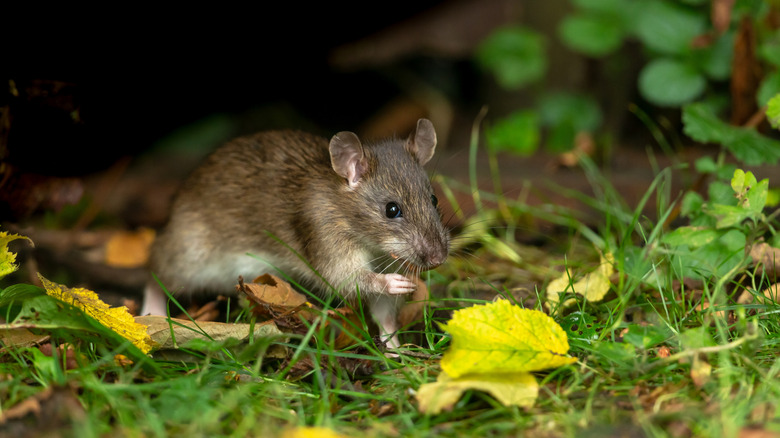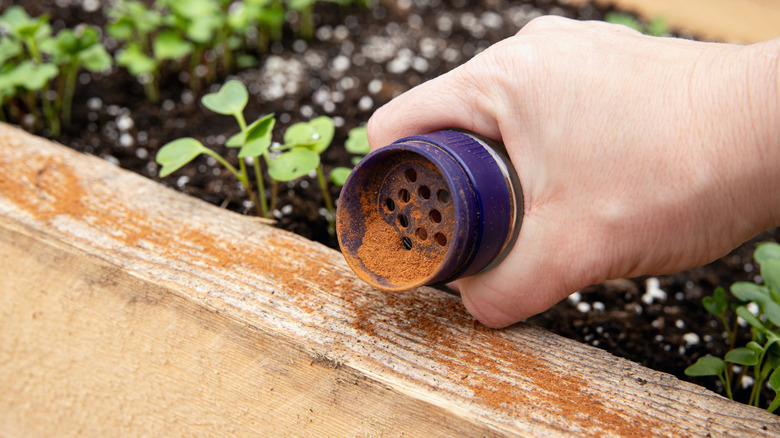Rats Will Stay Out Of Your Garden With One Ingredient From Your Kitchen
If rats are treating your garden like an all-you-can-eat buffet, you might not need traps or poison to send them packing. Believe it or not, the strong scent of cinnamon may be all it takes to send them running. This sweet-smelling spice might be a pantry staple, but to rats, it's more of a warning sign. Rats rely heavily on scent to find food and stay safe, and that's exactly what cinnamon throws off. Its bold fragrance comes from cinnamaldehyde, a natural substance that can interfere with their sense of smell and disrupt their normal behavior. Scientists from Cornell University have found that cinnamaldehyde can actually influence rodent behavior. In their study, male mice exposed to it showed signs of reduced fertility, whereas others avoided spaces where the scent lingered.
While researchers are still studying how exactly it works as a repellent, the Environmental Protection Agency includes cinnamon oil on its list of approved ingredients for minimum-risk pesticides. Remember that cinnamon won't solve a major rodent problem on its own, but it can serve as a safe and natural starting point. And since it doesn't pose a risk to humans or your plants, it's an easy way to get rid of rodents like the fruit rats.
How to use cinnamon to repel rats from your garden
When it comes to keeping rats away, cinnamon works best as a scent-based deterrent, not a one-time fix. Because rats are cautious and quick to adapt, consistency matters. Start by identifying rat-prone areas, such as compost piles, garden beds, or fence lines, where they might squeeze through. Then, lightly dust the edges of those zones with ground cinnamon to create a scent barrier. If you're using essential oil instead of powder, focus on boosting the scent's lasting power. One option is to dab cinnamon oil onto cotton pads or cloth scraps and place them near fence gaps or tucked behind planters. Since the smell fades over time, blending in a neutral carrier oil can help extend its effect. Just be sure to keep them out of reach of pets, as cinnamon oil can be irritating in concentrated form.
Cinnamon's scent won't stick around forever, especially in outdoor spaces where weather can wash or blow it away. To keep its effect strong, keep an eye, or nose, on the smell. When it starts to fade, it's time for a refresh. That might mean adding more powder along your garden's edges or replacing whatever you've used to hold the oil. As temperatures drop, rodents often shift their activity closer to human spaces, including gardens. If you're relying on organic pesticides such as cinnamon to keep them out, expect to refresh it more often than you would in the summer season.

